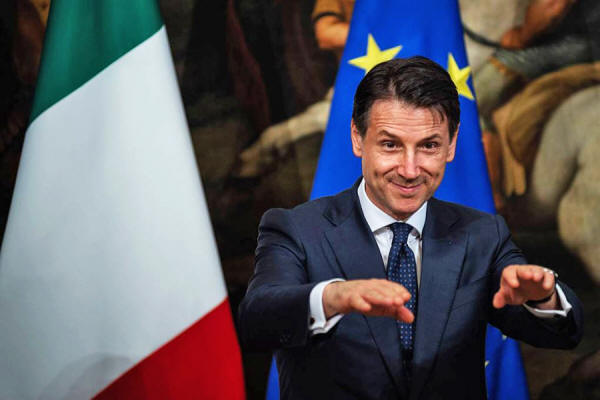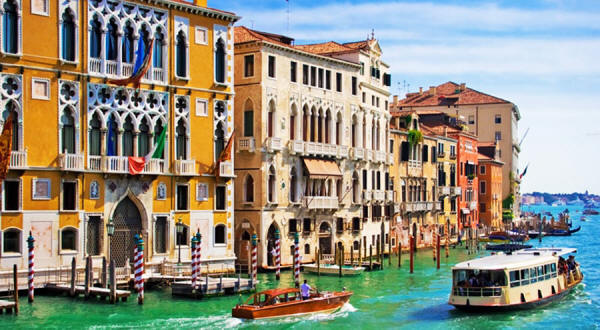|
during
his swearing-in ceremony
"Grappling with matters such as climate change, the environment, the European Union, is becoming too complex, even for experienced but non-specialist politicians"
On Wednesday June 6, Giuseppe Conte, an obscure academic handpicked by a coalition between the far-right League party and the anti-establishment Five Star Movement to be prime minister, secured the Parliament's backing.
He already made clear that banging his fist in Brussels to relax the Eurozone's rigorous budget rules is high on his list of priorities.
He also seems keen
on getting cozy with Russia.
Among all the drama and the coattail-riding, one thing about Italy's new government has almost gone unnoticed:
The Conte cabinet is a chimeric organism.
Within it, populist and extremist politicians cohabit with the very best of Italy's technocratic elite.
While both the League's Matteo Salvini and Five Star's Luigi Di Maio have been assigned ministerial posts to pursue their political hobby horses, the key levers of power are in technocratic hands:
The whole thing seems odd:
These guys should be at each other's throat. Yet they are ruling together...
How come?
His theory is that, far from being foes, technocracy and populism are increasingly becoming allies in a war against a common enemy:
In Italy's case, this is so obvious to be almost didactic.
The Five Star Movement started off in 2009 on the proposition that traditional politics was no longer fit for purpose, and that the parliamentary process should give way to direct democracy instead (the Conte cabinet features a Department for Parliament and direct democracy).
They took pride in running online primaries that allowed anyone to run for office under the Five Star banner - according to the principle that ordinary citizens rather than professional politicians should be in power.
But when they actually won the elections, the Five Star bunch realized that they had not enough experience to actually run a country.
So they called the professors in.
He says that the very same reasons that are catapulting populists into power - popular discontent with globalization, economic crisis, technological disruption - also mean that running a country has never been harder for inexperienced upstarts.
People in this and other countries might well have had enough of experts, but they still need them - whether to calm down the bond markets, or even to implement a populist agenda without making an utter mess of it.
Granted:
Its ambitious - if half-baked - vision of a futuristic internet-powered society always presupposed the injection of huge doses of technocracy.
Its flagship proposal for a "citizenship income" - a vast unemployment benefit reform, often misleadingly touted as an Universal Basic Income program - will need a lot of technical expertise to be pulled off. (Not to mention all the eggheads you'll need to transform colossally bureaucratic Italy into a direct democracy.)
While Italy is the first Western European case of pure techno-populism, Castellani thinks that similar dynamics have already started manifesting elsewhere.
He gives the example of French President Emmanuel Macron, whose brand of personalistic, disintermediated politics goes hand in hand with a cabinet stuffed with apolitical wonks.
And one could make the case that the way the uber-populist Brexit project fell into the lap of Theresa May - possibly the most technocratic of the Conservative roster - was a very British case of techno-populism.
Whatever you make of it, Castellani thinks that the Conte's cabinet is the Ghost of Many Governments Yet To Come...
In his opinion, the unrelenting global forces that gave us everything from Trump to Orban will keep mortifying traditional parties and rewarding populists; they will also make it impossible for populists to really govern without the help of technocrats.
Techno-populism might be 'the new normal'...
|



